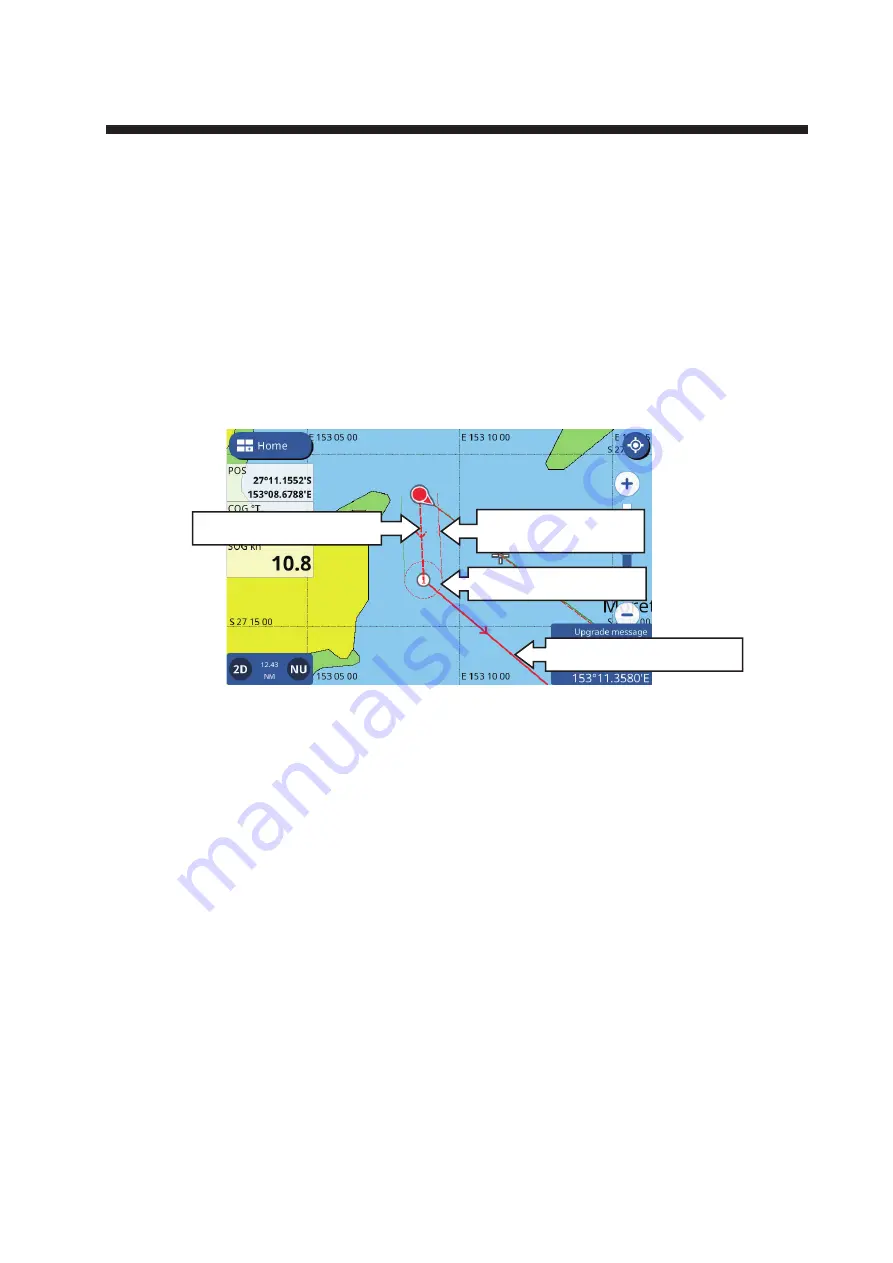
5-1
5.
ROUTES
5.1
What is a Route?
Often a trip from one place to another involves several course changes, requiring a
series of route points (waypoints) which you navigate to, one after another. The se-
quence of waypoints leading to the ultimate destination is called a route.
Once you create a route, you can navigate it. When you navigate a route (known as
the “active route”), the points on the route are white circles and a red line with arrows
connects between the points. The arrows show the direction in which to follow the
route. Inactive routes are shown as a blue line with arrows in the navigation direction
and waypoints are shown as blue circles.
5.2
How to Create Routes
5.2.1
Quick routes
A quick route uses the [Go To] feature to create a “temporary” route. Tap a location
on the chart or tap a point, then tap [Go To] in the pop up menu. The selected point/
location is set as a destination and the route line is shown as a dotted red line. The
route line also shows arrows in the navigational direction.
Note:
Quick routes are not saved in the [Routes] list and the destination point is not
saved in the [Points] list.
5.2.2
Planned routes with waypoints
A planned route contains two or more waypoints (referred to as “route points”) and is
saved with a name, comment and other details. The default name for planned routes
is “RTxxxx” (xxxx indicated the route number and the first route created is numbered
as 0001). By default, new routes have no comment.
You can change the name of the route when you create it, and you can change the
route comment after the route is saved.
Active leg (dotted red line)
XTD line
(PORT: red, STBD: green)
Active route (solid red line)
Arrival notification area
















































